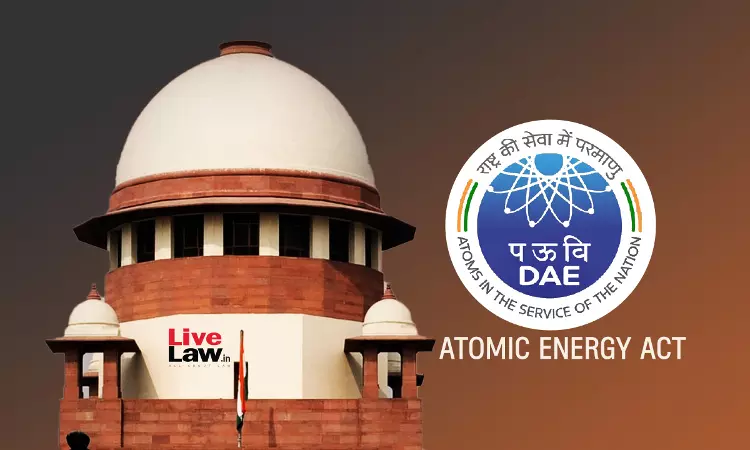The Supreme Court has upheld the provisions of the Atomic Energy Act 1962 which prohibit private entities from obtaining licence for working on nuclear energy.The Court observed that these provisions serve a "salutary public purpose" by ensuring that nuclear energy is used only for peaceful purposes under stringent government control. The Court was hearing a petition filed by a Physicist,...

